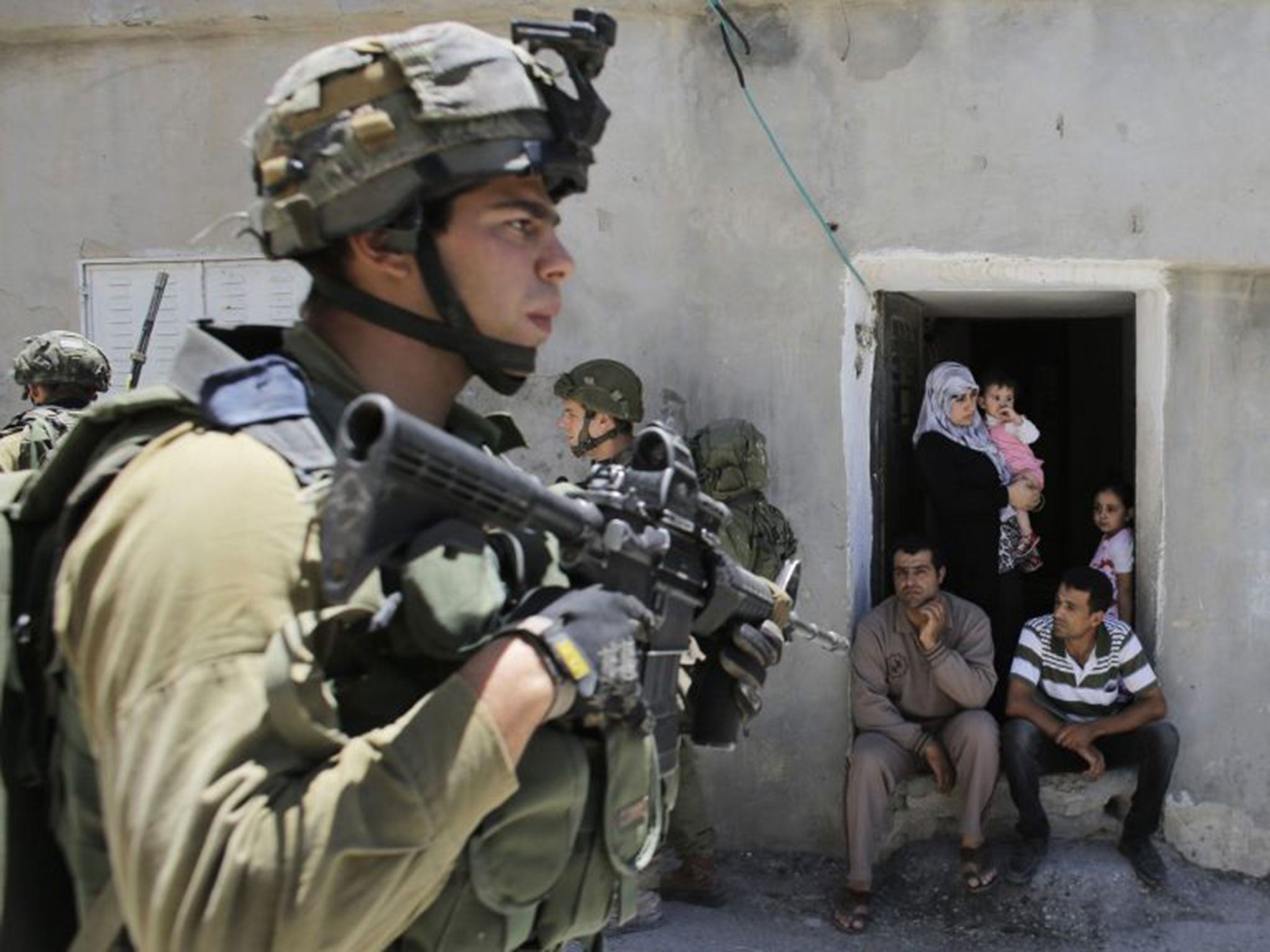Why we should stop calling for restraint between Israel and Palestine
If both sides were evenly matched then it would be appropriate — but they aren't

In the wake of the latest appalling flare-up in violence between Israel and Palestine, the buzzword among international leaders has been “restraint”. In most conflicts, this would seem like the obvious solution. But in this case, there is a problem with the word.
Calling for restraint on both sides frames the situation as an equal conflict, with two sides inflicting near equal amounts of violence on each other.
This is simply not the case. The Israel-Palestine situation is not a fair battle, but a prolonged process of colonisation by Israel which that has led to a brutal occupation of the Palestinian people.
The kidnappings and murder of the three Israeli settler teenagers is a horrible tragedy, but many people are failing to understand it as a symptom of the Israeli occupation.
Haneen Zoabi, an member of the country's parliament, has made one of the most rational evaluations of the situation. “Is it strange that people living under occupation and living impossible lives [...] act this way?" she has asked. "They are not terrorists. Even if I do not agree with them, they are people who do not see any way open to change their reality, and they are compelled to use means like these until Israel wakes up and sees the suffering, feels the suffering of the other.”
The Israeli Occupation Force’s operation to rescue the settlers demonstrated the total control over the Palestinian population. That was when we needed calls for restraint.
With little condemnation from international leaders, Israel raided over 2,000 buildings, arrested over 550 people (including children), demolished homes, and bombed Gaza. Deploying their common tactic of collective punishment, they have done their best to demonstrate to the world that Palestinian life is disposable and cheap.
But the Palestinians haven’t taken this latest assault on their liberties lying down.
They have resisted in Ramallah after Israeli Occupation Forces entered the city for the first time since 2007, and demonstrated in East Jerusalem against the Israeli vigilantes who abducted and killed a Palestinian teenager following the discovery of the bodies of the three Israeli teenagers.
And now there are whispers of a third intifada on the horizon. So just what is being asked of the Palestinians when international leaders now also ask them for restraint? Is it so strange, as Haneen Zoabi asks, that Palestinians should resist so many years of occupation, siege and abuse of human rights?
But this isn’t about absolving anyone of violent acts. It is about framing the frightening escalating events on the ground in the correct context so that we may go some way to ending it.
The current international paradigm insists that when we call for restraint, we call for it on both sides, just to be fair. But this persistent idea that Palestinians and Israelis are equal adversaries couldn't be further from the truth.
Israel is one of the world’s leading nuclear powers and they have one of the world’s deadliest armies. They have sustained an occupation on the Palestinian people for decades. And now they have used the murder of three Israeli teenagers as a justification to unleash a barrage of violence.
This is not an escalation between two warring enemies, it is an occupation that has lasted for over half a century, and must be understood as such.
Join our commenting forum
Join thought-provoking conversations, follow other Independent readers and see their replies
Comments
Bookmark popover
Removed from bookmarks